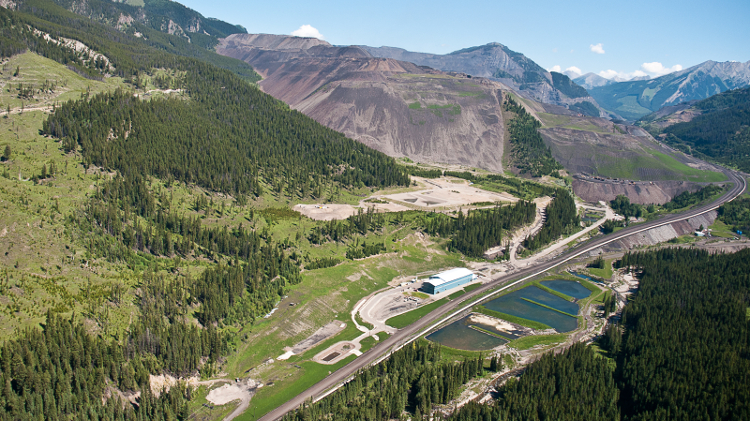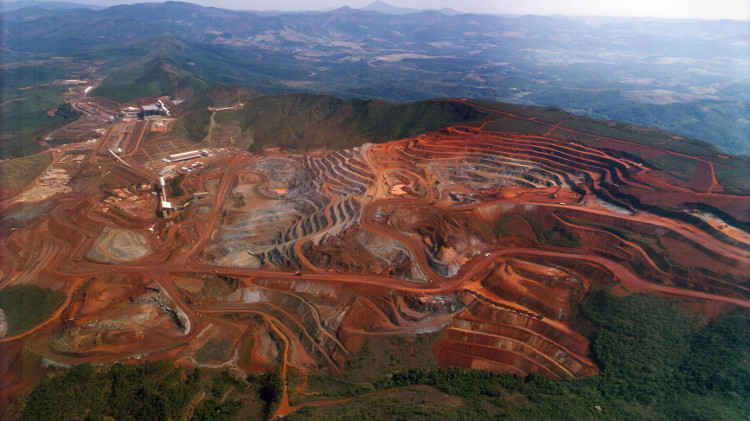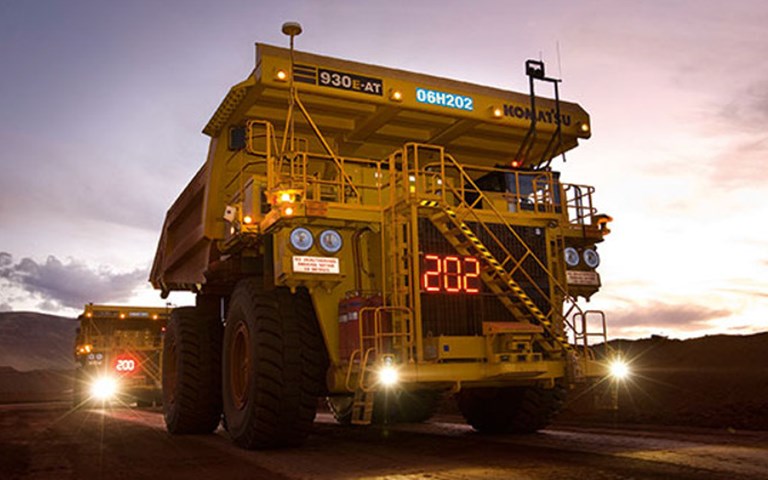Haul trucks from Komatsu (pictured) and Caterpillar at Rio Tinto's Pilbara operations will be retrofitted with autonomous haulage technology by the end of 2019. Courtesy of Rio Tinto
Rio Tinto is expanding its autonomous haul truck fleet at its Pilbara iron ore operations by more than 50 per cent over the next two years.
The major miner announced on Monday it had signed agreements with equipment giants Caterpillar and Komatsu to retrofit traditional haul trucks with autonomous haulage systems as part of a $5-billion “productivity drive.”
The company will begin retrofitting 29 Komatsu trucks from its Brockman 4 iron ore operation in early 2018, and expect the project to be complete by mid-2019. When it is finished, the mine will be able to run entirely in autonomous haulage system mode.
At the Marandoo mine, the company will start retrofitting 19 Caterpillar trucks in mid-2018, and expect them to be completed by the end of 2019. Rio Tinto called the Caterpillar retrofit “significant” because it will be the first time the company has used autonomous haulage system technology on Caterpillar trucks.
Related: Intent on mining the benefits of driverless vehicles, operators and tech suppliers are mapping multiple paths to the autonomous mine.
“The expansion of our autonomous fleet via retrofitting helps to improve safety, unlocks significant productivity gains and continues to cement Rio Tinto as an industry leader in automation and innovation,” said Rio Tinto’s iron ore chief executive, Chris Salisbury, in a news release.
According to Rio Tinto, each of its autonomous haul trucks operated for an additional 1,000 hours last year on average and had a 15 per cent lower load and haul cost per unit than conventional trucks. Of the 400 Rio Tinto haul trucks operating in the Pilbara, about 20 per cent have autonomous capabilities.
Salisbury said the company is studying future additions to its Pilbara autonomous fleet.
The retrofitting project is part of an effort from the company’s Pilbara iron ore operations to give the company $500 million in free cash flow annually starting in 2021.
In October, the company announced it had completed its first fully autonomous train trip at its Pilbara operations as part of its AutoHaul project.




